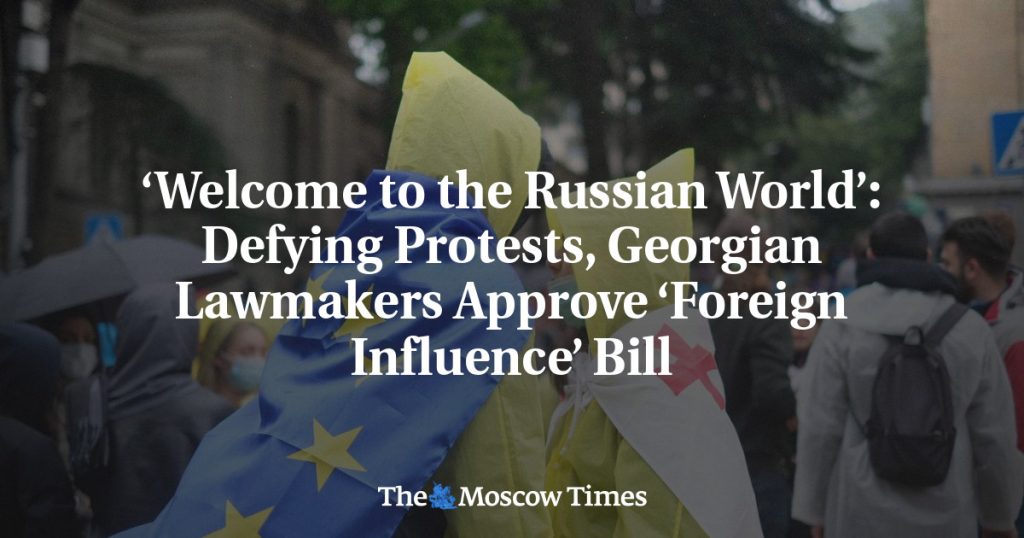Georgian lawmakers approved a controversial bill aimed at regulating “foreign influence” in its final reading, despite widespread protests from tens of thousands of people who fear it could lead to Russian-style repression and jeopardize the country’s ambitions to join the European Union. The protests have evolved into a wider confrontation between society and the government, with people expressing concerns about Georgia’s foreign policy trajectory and not wanting to replicate Russia’s repressive laws.
Despite the mass demonstrations and arrests of protesters, Prime Minister Irakli Kobakhidze has vowed that lawmakers will pass the bill. President Salome Zurabishvili has promised to veto the law, but the ruling Georgian Dream party, with a majority in parliament, can override the veto without support from opposition MPs. The bill requires NGOs and media outlets receiving over 20% of their funding from abroad to register as entities serving foreign interests, which protesters see as a threat to freedom of speech, civil society, and Georgia’s EU accession.
Protests against the law have seen tens of thousands of people gathering in Tbilisi, chanting slogans against the government and waving Georgian and EU flags. Protesters are concerned about the law creating a barrier between Georgia and the EU, citing similarities with Russian laws that stifle free speech and impose censorship. Over 100 Georgian NGOs have called for the withdrawal of the bill, and even Russian activists who moved to Georgia to escape repression in their country have spoken out against the legislation.
Human Rights Watch has warned that the “foreign influence” law in Georgia threatens fundamental rights, citing a similar law in Russia that was found to violate the right to association by the European Court of Human Rights. While the ruling Georgian Dream party denies pursuing a pro-Russia policy and claims the law is based on European values of transparency and accountability, critics argue that it could lead to increased government control and censorship. The party’s founder, Bidzina Ivanishvili, has framed the law as a defense against alleged threats from Western powers.
Moscow has denied influencing Georgia’s law on foreign influence and suggested that the protests may be orchestrated from abroad. The Kremlin views the demonstrations in Tbilisi as interference in Georgia’s internal affairs and has expressed a desire to protect the country from external influences. Analysts believe that the law could signal a shift towards closer ties with Russia and away from Georgia’s aspirations to join the EU, despite public support for EU membership. Ultimately, the “foreign influence” legislation reflects the ruling party’s attempt to establish a new role for Georgia in the region, potentially attracting investment from Russia, although it appears to have underestimated the public backlash.


